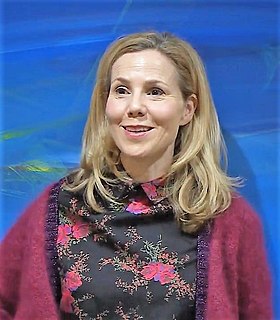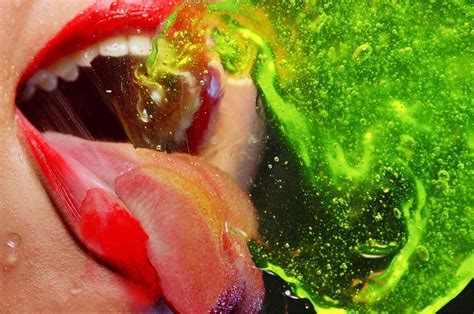A Quote by George Carlin
Because Brenda [Carlin] had a drinking problem along with the coke, she had to hit bottom first. Most alcoholics do. And for her, bottom was an automobile accident that almost landed her in jail.
Related Quotes
At that moment a very good thing was happening to her. Four good things had happened to her, in fact, since she came to Misselthwaite Manor. She had felt as if she had understood a robin and that he had understood her; she had run in the wind until her blood had grown warm; she had been healthily hungry for the first time in her life; and she had found out what it was to be sorry for someone.
When her body first hit the net, all I registered was a gray blur. I pulled her across it and her hand was small, but warm, and then she stood before me, short and thin and plain and in all ways unremarkable- except that she had jumped first. The stiff had jumped first. Even I didn't jump first. Her eyes were so stern, so insistent. Beautiful.
Selfishly, perhaps, Catti-brie had determined that the assassin was her own business. He had unnerved her, had stripped away years of training and discipline and reduced her to the quivering semblance of a frightened child. But she was a young woman now, no more a girl. She had to personally respond to that emotional humiliation, or the scars from it would haunt her to her grave, forever paralyzing her along her path to discover her true potential in life.
Because of course she had known she must go. She always did the thing because in obedience lay the integrity that God asked of her. If anyone had asked her what she meant by integrity she would not have been able to tell them but she had seen it once like a picture in her mind, a root going down into the earth and drinking deeply there. No one was really alive without that root.
She had witnessed the world's most beautiful things, and allowed herself to grow old and unlovely. She had felt the heat of a leviathan's roar, and the warmth within a cat's paw. She had conversed with the wind and had wiped soldier's tears. She had made people see, she'd seen herself in the sea. Butterflies had landed on her wrists, she had planted trees. She had loved, and let love go. So she smiled.
Tibby sat on the outside of a group of kids in the film program. There was a lot of dark clothing and heavy footwear, and quite a few piercings glinting in sunlight. They had invited her to sit with them while they all finished up their lunches before film seminar. Tibby knew that they had invited her largely because she had a ring in her nose. This bugged her almost as much as when people excluded her because she had a ring in her nose.
From an early age she had developed the art of being alone and generally preferred her own company to anyone else’s. She read books at enormous speed and judged them entirely on her ability to remove her from her material surroundings. In almost all the unhappiest days of her life she had been able to escape from her own inner world by living temporarily in someone else’s, and on the two or three occasions that she had been too upset to concentrate she had been desolate.
I wanted so badly to lie down next to her on the couch, to wrap my arms around her and sleep... Just sleep together, in the most innocent sense of the phrase. But I lacked the courage and she had a boyfriend and I was gawky and she was gorgeous and I was boring and she was endlessly fascinating. So I walked back to my room and collapsed on the bottom bunk, thinking that if people were rain, I was drizzle and she was a hurricane.
[Keeping kosher was] the symbol of an initiation, like the insignia of a secret brotherhood, that set her apart and gave her freedom and dignity. Every law whose yoke she accepted willingly seemed to add to her freedom: she herself had chosen . . . To enter that brotherhood. Her Judaism was no longer a stigma, a meaningless accident of birth from which she could escape . . . It had become a distinction, the essence of her self-hood, what she was, what she wanted to be, not merely what she happened to be.
It had been three weeks, four days and twelve hours since I'd seen her. Since she'd torn my heart out. If I had been drinking, I'd blame it on the alcohol. It had to be an illusion, a desperate one. But I hadn't been drinking. Not a drop. There was no mistaking Blaire. It was her. She was actually here. Blaire was back in Rosemary. She was at my house.
She stared at herself in the mirror. Her eyes were dark, almost black, filled with pain. She'd let someone do that to her. She'd known all along she felt things too deeply. She became attached. She didn't want a lover who could walk away from her, because she could never do that - love someone completely and survive intact if her left her.
She had been sharing a house with him for a week, and he had not once flirted with her. He had worked with her, asked her opinion, slapped her on the knuckles figuratively speaking when she was on the wrong track, and acknowledged that she was right when she corrected him. Dammit, he had treated her like a human being.


































